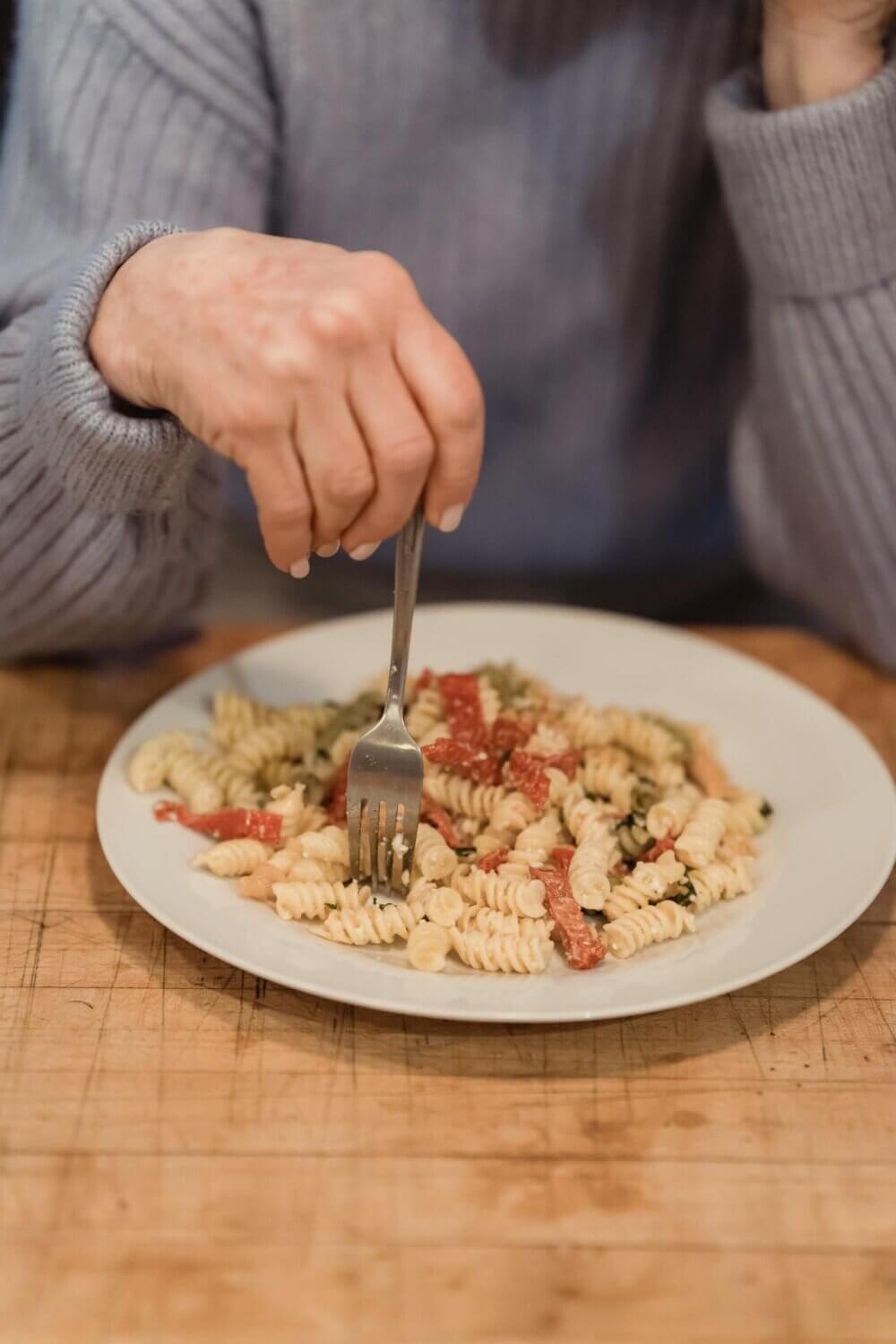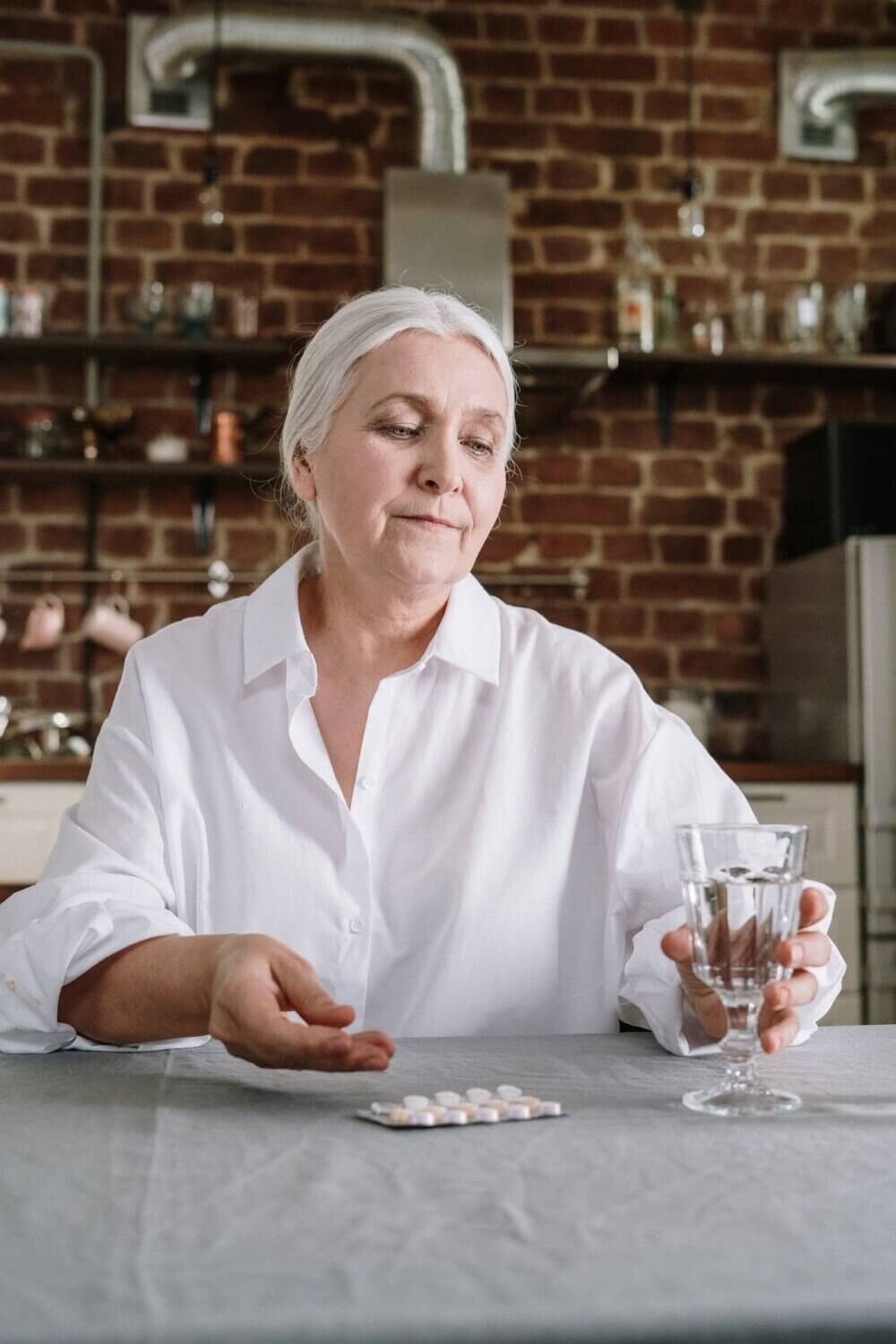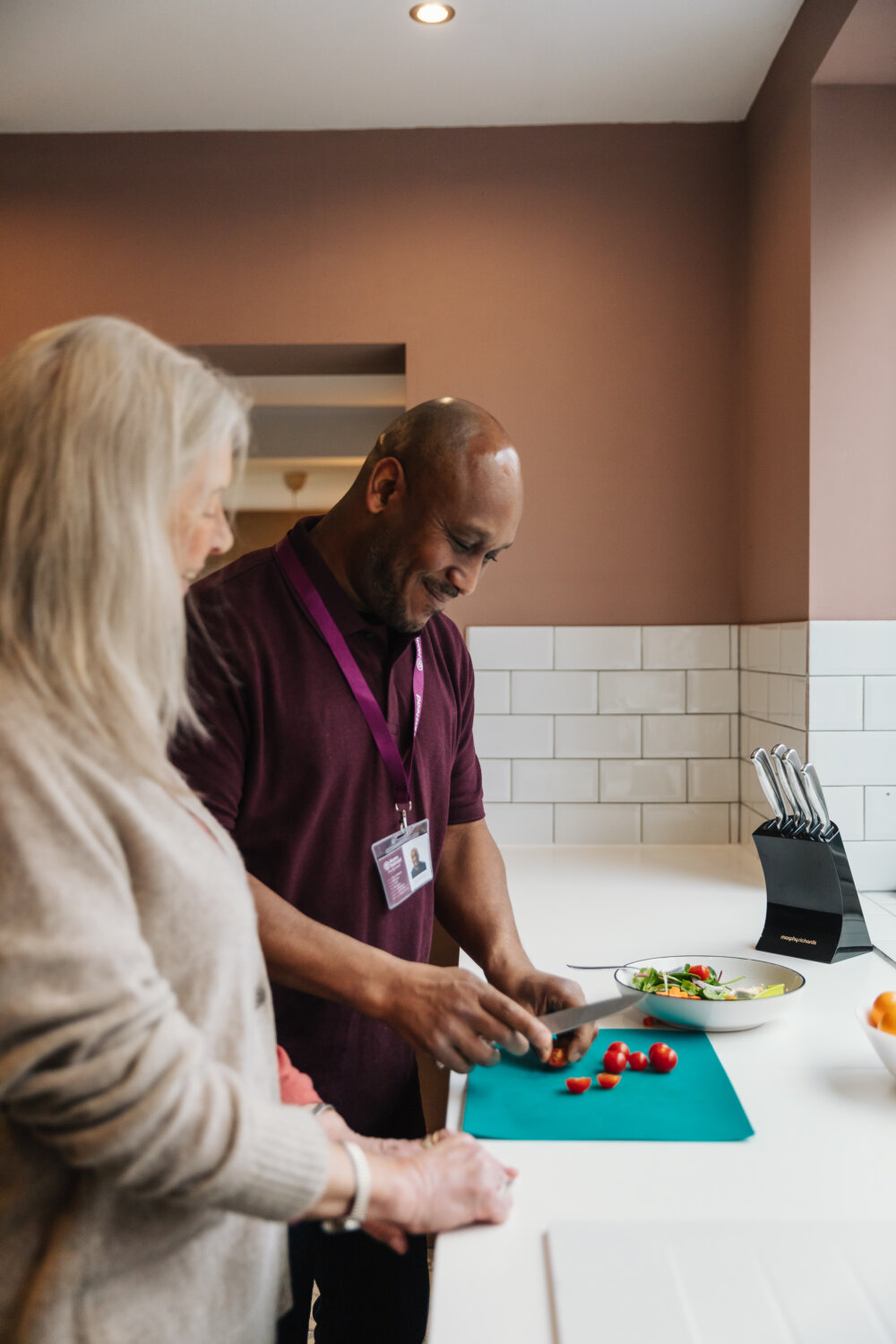Handling loss of appetite in ageing adults
If you are caring for an older loved one who seems to have lost their appetite for food, there are a number of reasons why this might be happening.
Here, we are taking a look at why ageing adults tend to lose their appetite, some of the medical conditions that might cause this, tips and tricks for stimulating appetite, how to make sure they are getting sufficient nutritional intake, and more.
At Home Instead, our aim is to help people age positively and in place by bringing expert care to their home. For nearly 20 years, we have been providing the highest standard of care, and creating industry-leading training programmes for our Care Professionals that are accredited by nursing and medical professionals. Today, we are the world’s largest global home care network, supporting over 100,000 older adults with personalised, tailored care at home. So whatever questions you have about arranging home care services, we can help.
Important: Malnutrition can be a serious concern in older adults, so if you are caring for an older loved one who is not eating enough, you can refer to the NHS guide on ‘How to feed someone you care for’, or refer to Age UK’s Healthy Eating Guide for the most up to date information on the best foods to stay healthy, how much fluid to drink each day, how to keep a healthy weight, and more. If you are concerned about the health and wellbeing of an ageing relative, don’t hesitate to speak to their GP for more advice.
What are some of the reasons older people lose their appetite?
Loss of appetite in older people is very common, and it’s nothing to worry about unless you have noticed sudden, unexplained weight loss in a loved one. Over time, many older people will start to eat slightly less throughout the day, and studies estimate around 20% of them will see a notable loss of appetite.
The reasons for this range from a general lack of interest in food, to health problems that cause eating to be uncomfortable, undesirable or even painful. Here are some of the most common reasons for appetite loss in older people:
- Hormone changes: As people age, hormones change, and this can influence eating habits. Ghrelin (typically referred to as ‘the hunger hormone’) helps to regulate our appetite, but studies have found that ghrelin production slows with age, meaning the brain doesn’t get the hunger signals it once did. There is a lot of research showing that hormones play a big role in suppressing appetite as people get older.
- Digestive issues: It’s normal to experience changes to the digestive system as we get older, and this can affect appetite. Gastrointestinal changes, like developing an intolerance to certain foods, can make eating less of an enjoyable experience and therefore something to be avoided. Research finds that 30-40% of older people also suffer from chronic constipation, which can cause a reduced appetite.
- Dental issues: Older people may lose their appetite due to dental problems, as they are more likely to wear dentures or have difficulty chewing or swallowing, which can make eating uncomfortable.
- Dry mouth: Dry mouth may seem like a small problem, but it can have a big impact on appetite and is known to affect older people. It is estimated that around one third of people aged 65+ have reduced saliva production, making eating difficult.
- Changes in smell and taste: It is natural to experience a reduction of some senses as we age, which means smells and flavours in food don’t seem as strong as they once were. This could be due to a loss of taste buds in older people and can lead to food tasting bland and unappealing.
- Diet changes: Depending on an older person’s health needs, a doctor or healthcare specialist may recommend a specific diet (for example, a low sodium diet) in order to improve an individual’s health. Switching to less desirable food can lead to a lack of excitement – or even resentment – around eating.
- Less activity: Age-related bodily changes like a lower metabolic rate and less mobility (leading to a more sedentary lifestyle) can result in older people requiring fewer calories throughout the day and therefore experiencing a reduced appetite.
- Mobility challenges: Eating often requires cooking or food preparation, and this can be much more difficult if someone has issues with mobility or dexterity. They may struggle to stand in the kitchen for a long time, use utensils, or go out to the shops to buy groceries. As a result, an individual might eat less and start to lose their appetite.
- Loneliness or depression: Mealtimes may have been social events in the past, so older people who now live alone might lose their excitement around food, and naturally lose their appetite as a result. Studies have found appetite loss resulting from depression happens when the brain fails to associate internal signals about the state of the body with external food cues, meaning hunger signals are missed.
- Insomnia: Sleep issues like insomnia can have a big impact on waking life and cause fatigue. For those who have not had enough sleep or rest, tiredness leads to reduced energy, which influences whether someone chooses to cook or not.

What medications can cause loss of appetite?
When it comes to appetite loss, sometimes the culprit can be a prescribed medication. These might be medications such as:
- Antibiotics (used to fight infections)
- Amphetamines (stimulant medications)
- Digoxin (used to treat various heart conditions)
- Fluoxetine (an antidepressant medication)
- Hydralazine (blood pressure medication)
- Opioids (pain relief medication)
- Chemotherapy (a type of cancer treatment)
If you believe your relative’s appetite has decreased since starting a new medication, encourage them to speak to their doctor to see if adjustments can be made to the type of medicine or dosage – this could have a positive impact on their appetite.

Can a medical condition cause a loss of appetite?
Certain medical conditions can cause appetite loss, and as older people tend to suffer with more ailments there is a chance a medical condition could be behind the change in food intake.
Some conditions known to affect appetite include things like chronic liver disease, kidney disease, heart disease, hepatitis, cancer, HIV, hypothyroidism, diabetes and more. Other less serious conditions that might affect the appetite negatively in the short term include things like the common cold, infections, or food poisoning.
Dementia is a medical condition known to cause loss of appetite as it progresses, for a number of reasons. Someone with dementia could struggle to communicate that they are hungry or not hungry, or that they are not enjoying food. Memory loss could also be part of the issue, as someone with dementia may not realise when they last ate and could skip meals. Studies suggest those with dementia will likely experience decreased appetite as the condition worsens over time.
Important: If you notice a sudden loss of appetite in an older person you are caring for, this could be a symptom of a medical condition and may require treatment. Similarly, if you notice unexplained weight loss or gain, tiredness, or sudden changes in eating habits that last longer than a week, speak to a doctor.
How to stimulate appetite in older people
Although appetite loss is common as we age, this doesn’t mean you must resign yourself to rarely eating and not enjoying food. There are a number of ways you can encourage more eating and improve the experience.
- Eat more frequently: Instead of tackling 3 large meals every day, try 6 to 8 smaller meals instead to make eating more manageable. This can be achieved by having lots of healthy snacks around the house that can be picked up whenever the mood strikes, such as bananas, oranges, protein or granola bars, crackers, and so on. Having finger foods in the fridge can also encourage snacking, like cocktail sausages and cheese cubes. Also, try to encourage more eating on ‘good days’ when your loved one feels hungry, to make up for days when they don’t feel like eating.
- Stick to a regular eating schedule: Having set meal times can get the body used to eating at these times which can encourage hunger cues. Make a schedule and try to stick to this. You may also want to figure out what time of day your loved one tends to be most hungry and make sure there is always a meal available at this time.
- Simplify cooking: If mobility issues or tiredness make cooking more of a chore, consider setting up a grocery or meal delivery service so there is no need for your older relative to leave the house. You could also invest in adaptive utensils that can make cooking easier if they have, for example, joint pain due to arthritis. A home care service can provide help with cooking if required.
- Make eating more social: Eating tends to be a social occasion for many people throughout life, so when an older person is faced with eating alone it becomes less enjoyable. Research shows that eating alone more often is linked to lower diet quality and inadequate nutrient intake, so making meals more social can be a big part of improving appetite and health. This can be achieved by having regular meals together, employing a carer to encourage eating, or helping an older person attend community gatherings or respite centres where they can eat with others.
- Exercise: Older people tend to exercise less due to mobility issues, which decreases appetite. Conversely, if your loved one is physically able to exercise more this increases the energy burnt and therefore their need for fuel – this can boost their appetite. Research has found that physical activity can modulate resting hunger and satiety in older adults, and getting fresh air can also stimulate appetite. So, if they are able, encourage a walk before meals.
- Make mealtimes fun: Many older people simply don’t enjoy eating as much as they once did. Try to make mealtimes more enticing by letting them choose which foods they would like, adding more flavour with herbs and spices, switching up the menu regularly, and chatting as you eat. If your relative is eating alone, encourage them to pair mealtimes with their favourite television program or to put on their favourite music while they enjoy dinner.
- Use appetite stimulant medications: Sometimes medications can be used to stimulate a person’s appetite, so if you have tried other methods of encouraging eating and nothing is working, you may wish to arrange a doctor’s appointment for them to see if this could be an option.
- Ensure dentures fit comfortably: If dentures are the issue, a simple change of dentures could be the difference between eating very little each day and eating a sufficient diet. Ask your loved one how their dentures feel and if they are having any discomfort while eating. If this is the problem, encourage them to visit a dentist or clinical dental technician to discuss options.
What are the best food types to try?
If you are struggling to encourage a loved one to eat more, sometimes focusing on improving the nutrient content of the small amount of food they are eating can help to ensure they are staying as healthy as possible.
Try avoiding high fibre foods as these are known to promote feelings of fullness, which means your loved one will end up eating less. Focus on calorie-dense foods and try to fortify food where possible to add more nutrients like vitamins, iron and calcium. Try cooking with calorie-dense butter or olive oil, and add whole milk to porridge instead of water.
You could also add calories by purchasing drinkable meals, which can be easier for those with issues swallowing or chewing. Smoothies and shakes are packed with lots of nutrients and calories, and don’t give the same sensation as eating so they may be more enjoyable.
Ultimately, the best food to provide for an older person with a lack of appetite is exactly what they want to eat. Research suggests that if someone has the opportunity to choose what they want to eat, they tend to eat more of it more often, so find out what they are in the mood for and try to satisfy that craving while it’s there.
Some other examples of high calorie, easy-to-make meals and snacks include things like cereal with added cream, soup with added grated cheese, baked potatoes with added butter and cheese, toast with peanut butter, and scones with cream and jam.

What should they be aiming for in terms of nutritional intake?
According to Age UK, older adults should aim to include:
- Protein (meat, fish, eggs, tofu, beans, etc.) 2-3 times a day
- Carbohydrates (potatoes, bread, pasta, rice, etc.) with each meal
- Fruit and vegetables (oranges, carrots, Brussels sprouts, broccoli, etc.) – 5 portions a day if possible, but not in place of more high calorie foods
- Dairy (milk, cheese, yoghurt, etc.) – 3 portions a day
- Fluids (water, tea, coffee, fruit juice, etc.) – 6-8 cups or 1.5-2 litres a day
If you are worried that your loved one is looking too thin but aren’t sure, these questions might help:
- Do they have a smaller appetite than usual?
- Is their jewellery slipping off or becoming loose?
- Have they had to tighten their belt recently?
- Are they getting ill more than usual?
- Have their dentures become loose?
- Are they feeling more tired than usual?
- Have they complained of feeling colder?
- Have they complained of feeling dizzy?
Can home care support eating habits?
Yes, home care is an excellent way to ensure your loved one continues to eat normally at home. According to research, appetite loss in old age is more common in those living in care homes, so keeping your loved one in their own home where they can have more control over the foods they would like to eat can be a great way to ensure they stay healthy.
Home care from Home Instead can provide:
- Encouragement and reminders: Our Care Professionals can encourage your older relative to continue snacking throughout the day, ensure they are getting the right amount of calories, provide helpful reminders when it’s time to eat, and if they don’t feel like eating, offer a replacement such as a calorie-dense drinkable shake.
- Meal planning and preparation: Our Care Professionals can help plan out nutritionally balanced meals (according to prescribed diets, if needed), do grocery shopping, and prepare food. If your loved one has mobility issues, home care could be a great way to ensure they continue eating their favourite meals.
- Companionship during meal times: We offer companionship which can be especially helpful during mealtimes so your older relative can enjoy eating with company and start to look forward to meals again.

At Home Instead, we understand there’s no place like home, so our home care offering aims to help older adults retain independence and stay in familiar surroundings. We offer a number of bespoke services which can be tailored to your needs, such as the above, and our Care Professionals are highly trained to deliver the individualised service you need. Reach out to the team at Home Instead to learn more.
We’re an award-winning home care provider and part of a worldwide organisation devoted to providing the highest-quality relationship-led care for older people in their own homes. Arranging care for yourself or your loved one shouldn’t be stressful, so whatever questions you would like answered, feel free to reach out to the Home Instead team to discuss your needs.

Michelle Tennant, Clinical Governance Lead
I am a Registered Nurse of 20 years and have been in the care sector since I was 17 years old, I have had experience in every role that exists in a care company, including Registered Manager, care consultant, recruiter, scheduling, auditing, complaints, and networking! My role in the National office is Clinical Governance Lead, and most recently have been working with DHSC and Chief Nurse Deborah Sturdy to develop a clinical governance framework for the delegated healthcare activities in social care, I am continuing to take the lead on our Healthcare at Home service and drive this in the network. In addition to my nursing role, I’m 4 years into my PhD in Aging at Lancaster University, with a key focus on the retention of Care Professionals in the social care sector.